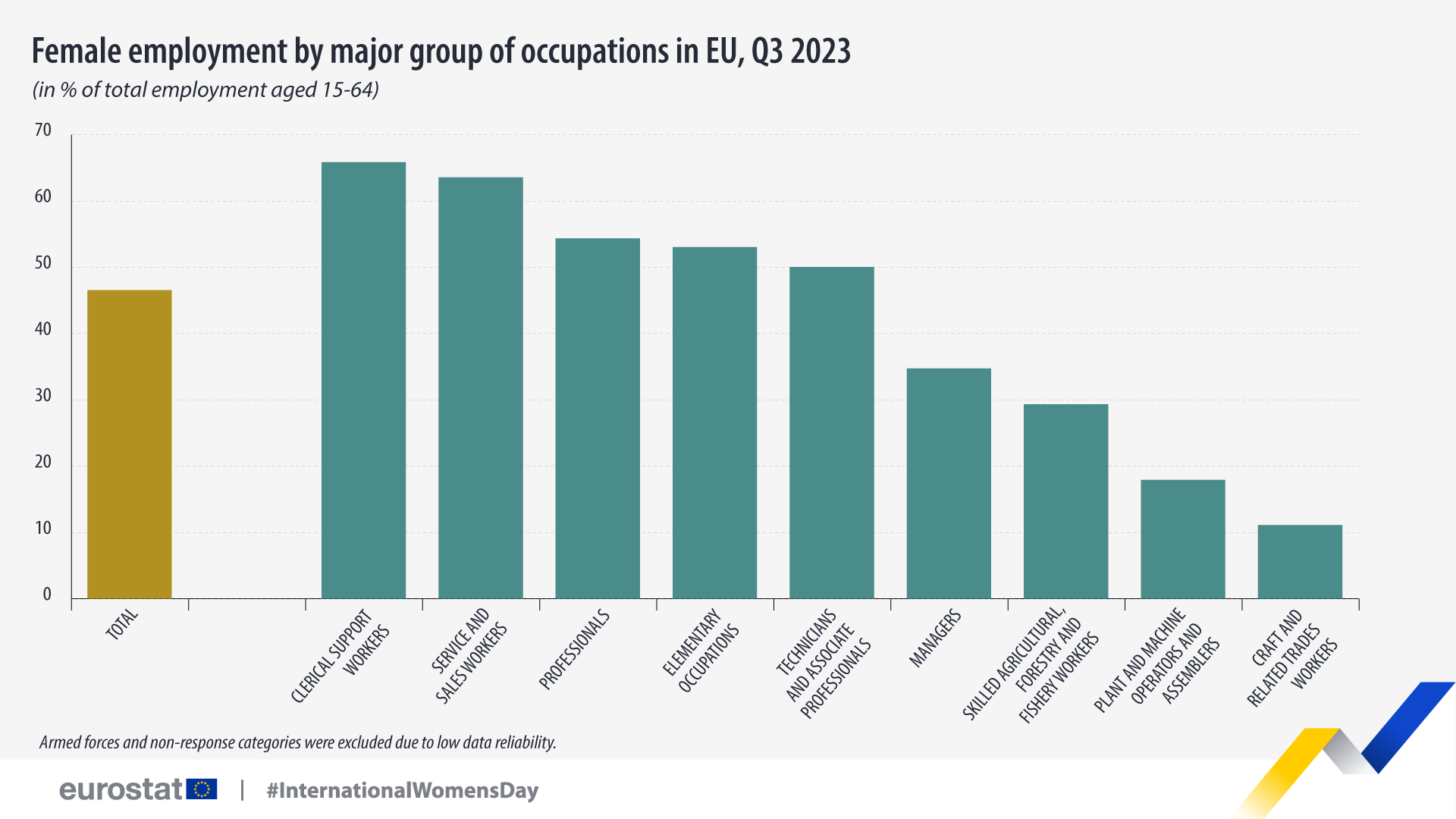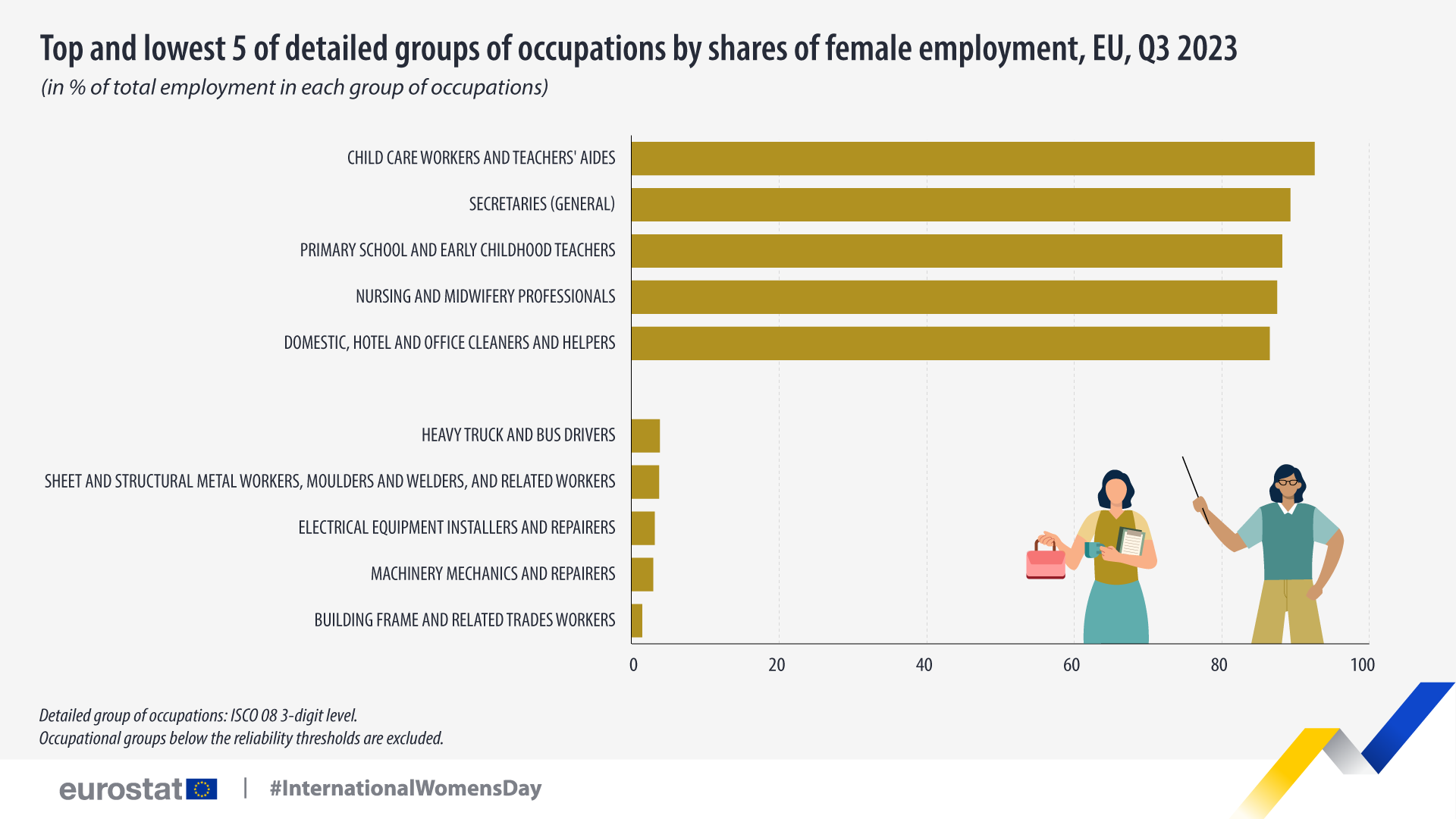In the third quarter of 2023, in the EU, the majority of employed people aged 15-64 years were men, 53.5% men compared with 46.5% women.
Nevertheless, in some major occupation groups as classified by the International Standard Classification of Occupations (ISCO), women represented the larger share: 65.8% of clerical support workers were women, 63.5% of service and sales workers, 54.3% of professionals e.g. scientists, teachers, and 53.0% of those in elementary occupations were women.
Women were equally represented as men among technicians and associate professionals (50.0%).
In contrast, women were rarely employed as craft and related trades workers (11.1%) and plant and machine operators and assemblers (17.9%). And among managers, only 34.7% were women.
Source dataset: LFS ad-hoc extraction
Childcare and teachers’ aides - 93% women
When looking at more detailed ISCO classification, women in the EU made up the vast majority of people employed in specific occupations, including childcare workers and teachers' aides (92.6% of the total employed in this occupation in the third quarter of 2023), secretaries (89.3%), primary school and early childhood teachers (88.2%), nursing and midwifery professionals (87.5%) and domestic, hotel, and office cleaners and helpers (86.5%).
Source dataset: LFS ad-hoc extraction
Women accounted only for a small minority of building frame and related trades workers (1.4% of total people employed in this occupation in the third quarter of 2023), workers employed in machinery mechanics and repairers (2.9%), electrical equipment installers and repairers (3.1%), sheet and structural metal workers, molders and welders and related workers (3.7%) and heavy truck and bus drivers (3.8%).
This article is part of a series of articles published to mark International Women’s Day.



